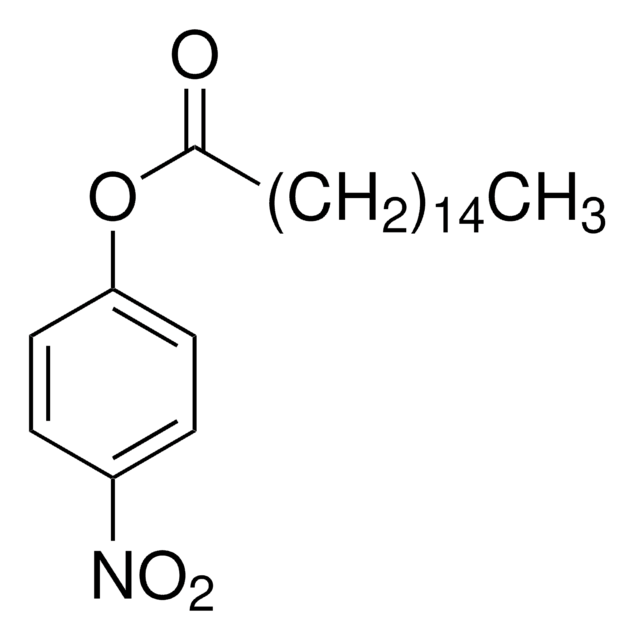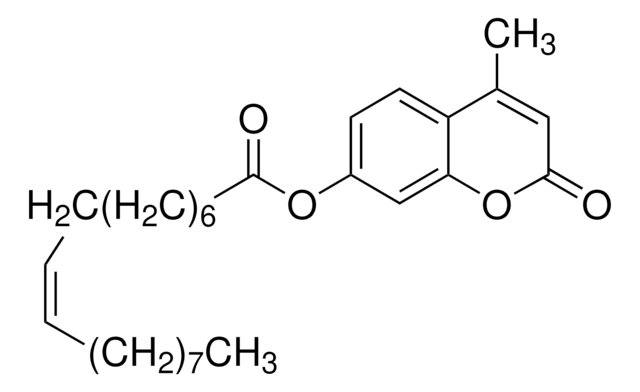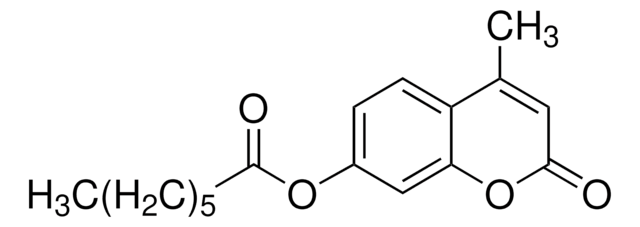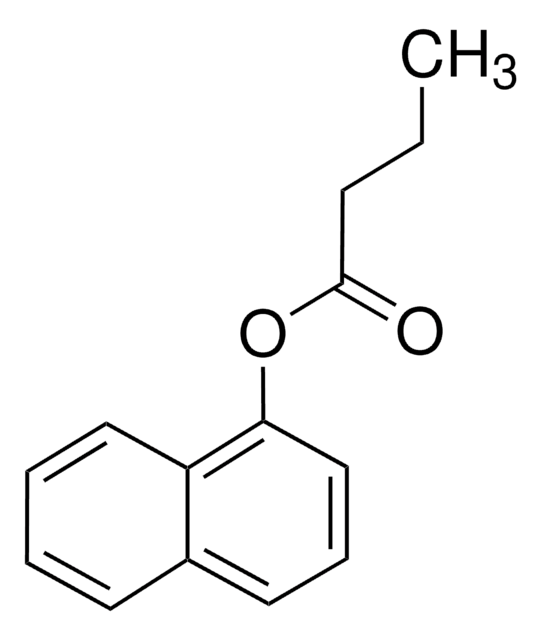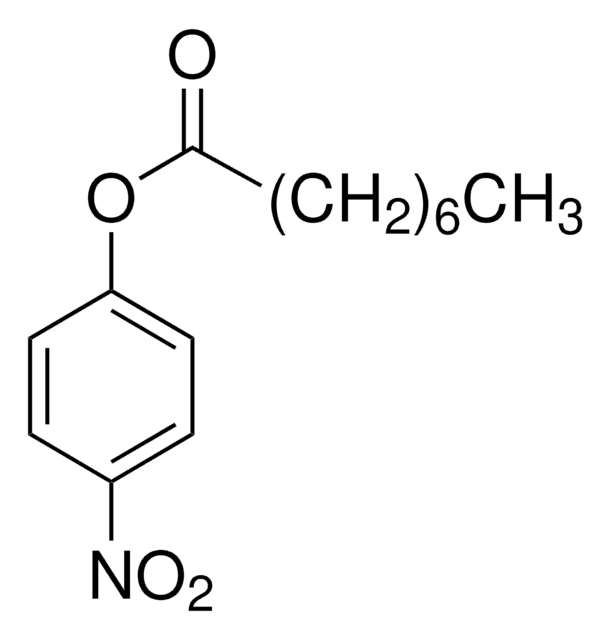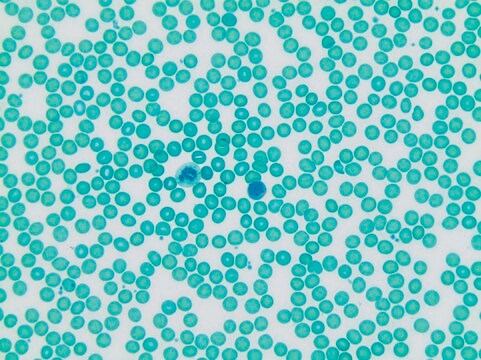19362
4-Methylumbelliferyl butyrate
lipase substrate; esterase substrate, ≥95% (HPCE), powder or crystals, suitable for fluorescence
Synonym(s):
MU-Bu
About This Item
Recommended Products
Product Name
4-Methylumbelliferyl butyrate, suitable for fluorescence, ≥95% (HPCE)
Quality Level
Assay
≥95% (HPCE)
form
powder or crystals
mp
90-92 °C (lit.)
solubility
DMF: soluble
DMSO: soluble
fluorescence
λex 312 nm in methanol
λex 360 nm; λem 449 nm (Reaction product)
λex 365 nm; λem 445 nm in 0.1 M Tris pH 8.0 (Lipase)
suitability
suitable for fluorescence
storage temp.
−20°C
SMILES string
CCCC(=O)Oc1ccc2C(C)=CC(=O)Oc2c1
InChI
1S/C14H14O4/c1-3-4-13(15)17-10-5-6-11-9(2)7-14(16)18-12(11)8-10/h5-8H,3-4H2,1-2H3
InChI key
WKPUJZVCZXWKCK-UHFFFAOYSA-N
Looking for similar products? Visit Product Comparison Guide
Application
Other Notes
Storage Class Code
11 - Combustible Solids
WGK
WGK 3
Flash Point(F)
Not applicable
Flash Point(C)
Not applicable
Personal Protective Equipment
Choose from one of the most recent versions:
Already Own This Product?
Find documentation for the products that you have recently purchased in the Document Library.
Customers Also Viewed
Our team of scientists has experience in all areas of research including Life Science, Material Science, Chemical Synthesis, Chromatography, Analytical and many others.
Contact Technical Service


